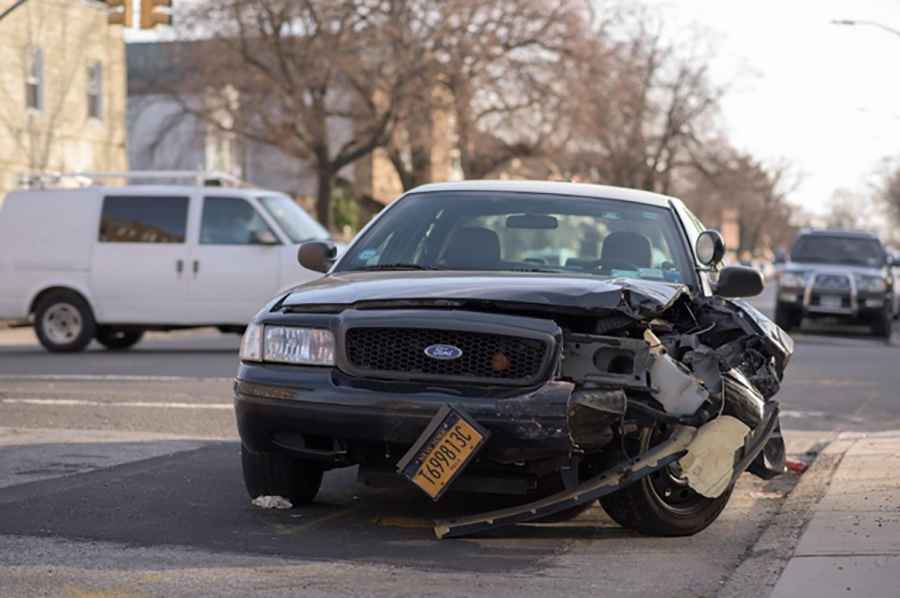Post-Crash Protocol: Technical Management in Remote Environments
In high-risk overland routes, a vehicle incident is not a legal matter—it is a complex survival and engineering recovery operation. When an accident occurs in remote areas like the Pamir Highway or the deep Amazon, the lack of cellular coverage and the distance from emergency services mean that the vehicle crew must act as the first responders, mechanics, and logistics coordinators. The first 60 minutes (the Golden Hour) are critical for preventing fatalities and total vehicle loss.

| Emergency Protocols | |
|---|---|
| Primary Comm Standard | Satellite (PLB / SOS InReach) - 406 MHz / Iridium Network |
| Medical Protocol | MARCH (Massive Hemorrhage, Airway, Respiration, Circulation, Hypothermia) |
| Scene Safety Radius | 50 meters (Minimum distance for non-essential personnel) |
| Recovery Hardware | Rated Shackles (WLL 4.75t+), Winch & Kinetic Ropes |
1. Immediate Scene Stabilization and Physics of the Site
On steep gradients exceeding 25% or narrow shelf roads, a crashed vehicle is an unstable mass subject to gravity and shifting terrain. Your first priority is preventing a secondary incident:
- Mechanical Anchoring: If the chassis is perched on an incline, immediately secure it using wheel chocks or by winching to a fixed "deadman" anchor (large rock or deeply buried spare tire). Relying on the handbrake after a structural impact is a common terminal error.
- Kinetic Energy Assessment: Evaluate if the road surface (gravel, mud, or scree) can support the weight of the vehicle and the recovery equipment. On dangerous roads, the ground under a crashed vehicle often becomes unstable after the initial impact.
- Electrical Isolation: High-vibration environments can fray wiring. Isolate the main battery terminal to prevent electrical fires, especially if auxiliary fuel tanks (Jerry cans) have been compromised.
2. Wilderness First Aid (WFA) Protocol: The MARCH Algorithm
Conventional urban first aid (CPR-centric) is often insufficient for expedition accidents involving high-energy trauma. You must apply the MARCH algorithm, designed for delayed extraction environments:
- Massive Hemorrhage: Immediate application of a CAT (Combat Application Tourniquet) for arterial bleeds. In remote logistics, blood loss is the #1 preventable cause of death.
- Airway & Respiration: Check for thoracic trauma. High-altitude environments (e.g., the Andes or Himalayas) complicate respiratory recovery due to lower partial pressure of oxygen.
- Hypothermia (The Silent Killer): Even in the Sahara, a trauma victim will lose body temperature rapidly due to shock. Use insulated "Bivvy" bags and chemical heat packs. Do not place the victim directly on the ground; use a sleeping pad to prevent conductive heat loss.
3. SOS Transmission and Telemetry Logistics
If there is no 4G/LTE coverage, the technical protocol for signaling a SAR (Search and Rescue) operation is:
- Satellite SOS: Trigger the SOS on an Iridium-based device. When the GEOS center responds, provide the "Three W's": Who (number of victims), Where (GPS coordinates in decimal degrees), and What (nature of the incident—roll, fire, or medical).
- Visual Signaling: In deep canyons or dense forest, satellite signals can be intermittent. Use a signal mirror (Heliograph) or high-lumen strobe lights to guide ground teams or helicopters.
- HEMS (Helicopter Emergency Medical Services): If a helicopter is dispatched, clear a landing zone (LZ) of 30x30 meters. Mark the wind direction with a smoke grenade or a secured piece of bright fabric.
4. Technical Recovery and Environmental Protection
Once the human element is stabilized, the focus shifts to technical recovery (extrication of the vehicle):
- Winch Loading: Calculate the "Total Rolling Resistance" including the gradient and the "Mire Resistance" (if the vehicle is stuck in mud or sand) before attempting a pull. Using undersized shackles can lead to catastrophic metal-projectile failure.
- Fluid Containment: Most dangerous roads cross sensitive ecosystems. Use spill kits or absorbents to contain oil, coolant, or diesel leaks. In many jurisdictions, leaving toxic fluids at the scene of an accident can lead to severe environmental fines and loss of transit permits.